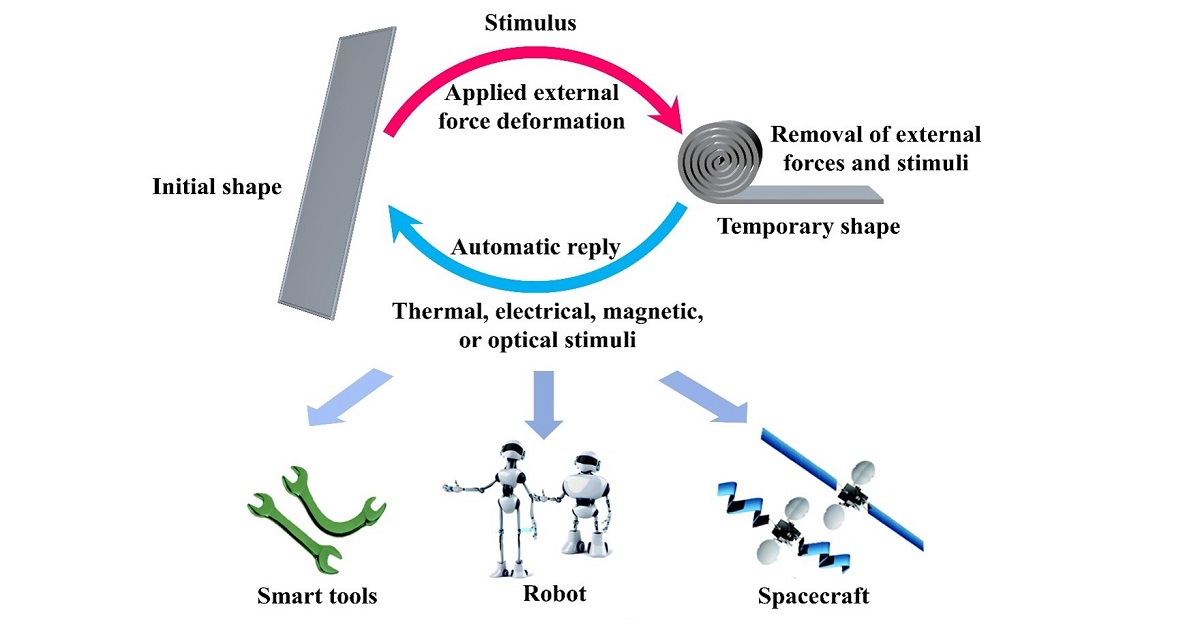Advances in Shape Memory Polymers: Fundamentals and Applications
A special issue of Materials (ISSN 1996-1944). This special issue belongs to the section "Smart Materials".
Deadline for manuscript submissions: 31 December 2025 | Viewed by 105

Special Issue Editors
Interests: Shape memory polymer; 4D printing; composites; structural design
Special Issues, Collections and Topics in MDPI journals
Interests: data driven; physical–data fusion; thermal deformation; vibration reduction
Special Issues, Collections and Topics in MDPI journals
Special Issue Information
Dear Colleagues,
Shape Memory Polymers (SMPs) have garnered significant attention in recent years due to their remarkable ability to return to a predefined shape upon stimulus, making them ideal for a range of innovative applications. Early SMPs focused on thermal responsiveness, while recent progress integrates multi-stimuli mechanisms, dynamic covalent networks, and bioinspired architectures. Breakthroughs include 4D-printed SMPs, self-healing networks for extreme environments, and biodegradable SMPs for temporary medical implants. As a result, SMPs are increasingly becoming an essential component in the design of smart materials and structures.
This Special Issue aims to explore the latest advancements in the understanding of SMPs, focusing on both the fundamental principles behind their behavior and their practical applications. The scope of this Special Issue encompasses a wide range of topics, including, but not limited to, the design of new SMP materials and their fabrication processes, characterization techniques, and applications in various fields such as healthcare, robotics, the automotive sector, aerospace, and energy. We encourage manuscripts that investigate the fundamental mechanisms governing the shape memory effect, the development of new SMP-based composites, and their integration with other smart materials. We invite authors to submit original research articles, reviews, and short communications that offer novel insights into the advances of SMPs, as well as practical solutions to overcome the challenges faced in their applications.
Dr. Long Chen
Prof. Dr. Xiangsheng Gao
Guest Editors
Manuscript Submission Information
Manuscripts should be submitted online at www.mdpi.com by registering and logging in to this website. Once you are registered, click here to go to the submission form. Manuscripts can be submitted until the deadline. All submissions that pass pre-check are peer-reviewed. Accepted papers will be published continuously in the journal (as soon as accepted) and will be listed together on the special issue website. Research articles, review articles as well as short communications are invited. For planned papers, a title and short abstract (about 100 words) can be sent to the Editorial Office for announcement on this website.
Submitted manuscripts should not have been published previously, nor be under consideration for publication elsewhere (except conference proceedings papers). All manuscripts are thoroughly refereed through a single-blind peer-review process. A guide for authors and other relevant information for submission of manuscripts is available on the Instructions for Authors page. Materials is an international peer-reviewed open access semimonthly journal published by MDPI.
Please visit the Instructions for Authors page before submitting a manuscript. The Article Processing Charge (APC) for publication in this open access journal is 2600 CHF (Swiss Francs). Submitted papers should be well formatted and use good English. Authors may use MDPI's English editing service prior to publication or during author revisions.
Keywords
- shape memory polymers
- composites
- 4D printing
- applications
- fundamentals
- design
- stimuli-responsive
- shape memory effect
- multifunction
Benefits of Publishing in a Special Issue
- Ease of navigation: Grouping papers by topic helps scholars navigate broad scope journals more efficiently.
- Greater discoverability: Special Issues support the reach and impact of scientific research. Articles in Special Issues are more discoverable and cited more frequently.
- Expansion of research network: Special Issues facilitate connections among authors, fostering scientific collaborations.
- External promotion: Articles in Special Issues are often promoted through the journal's social media, increasing their visibility.
- Reprint: MDPI Books provides the opportunity to republish successful Special Issues in book format, both online and in print.
Further information on MDPI's Special Issue policies can be found here.







